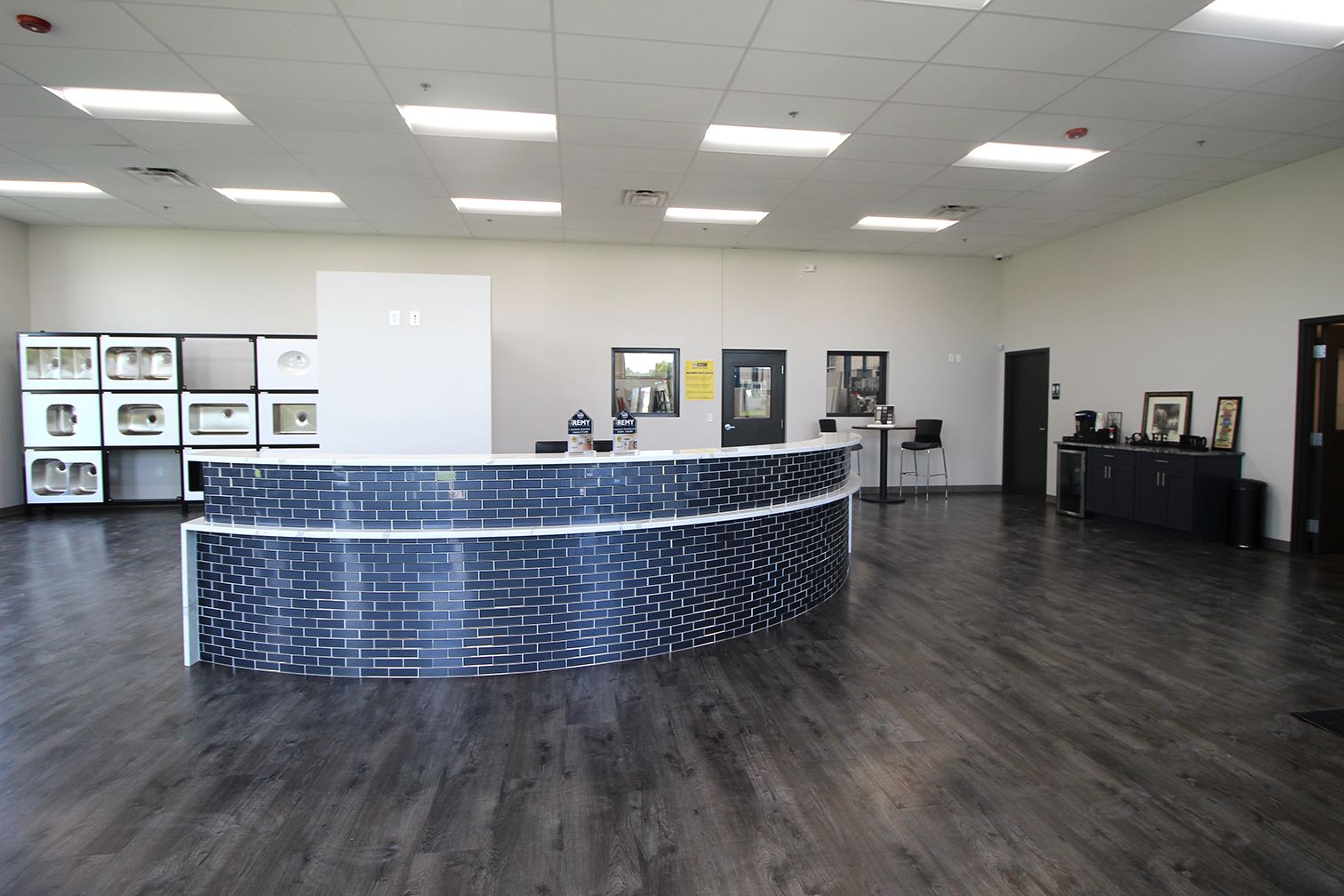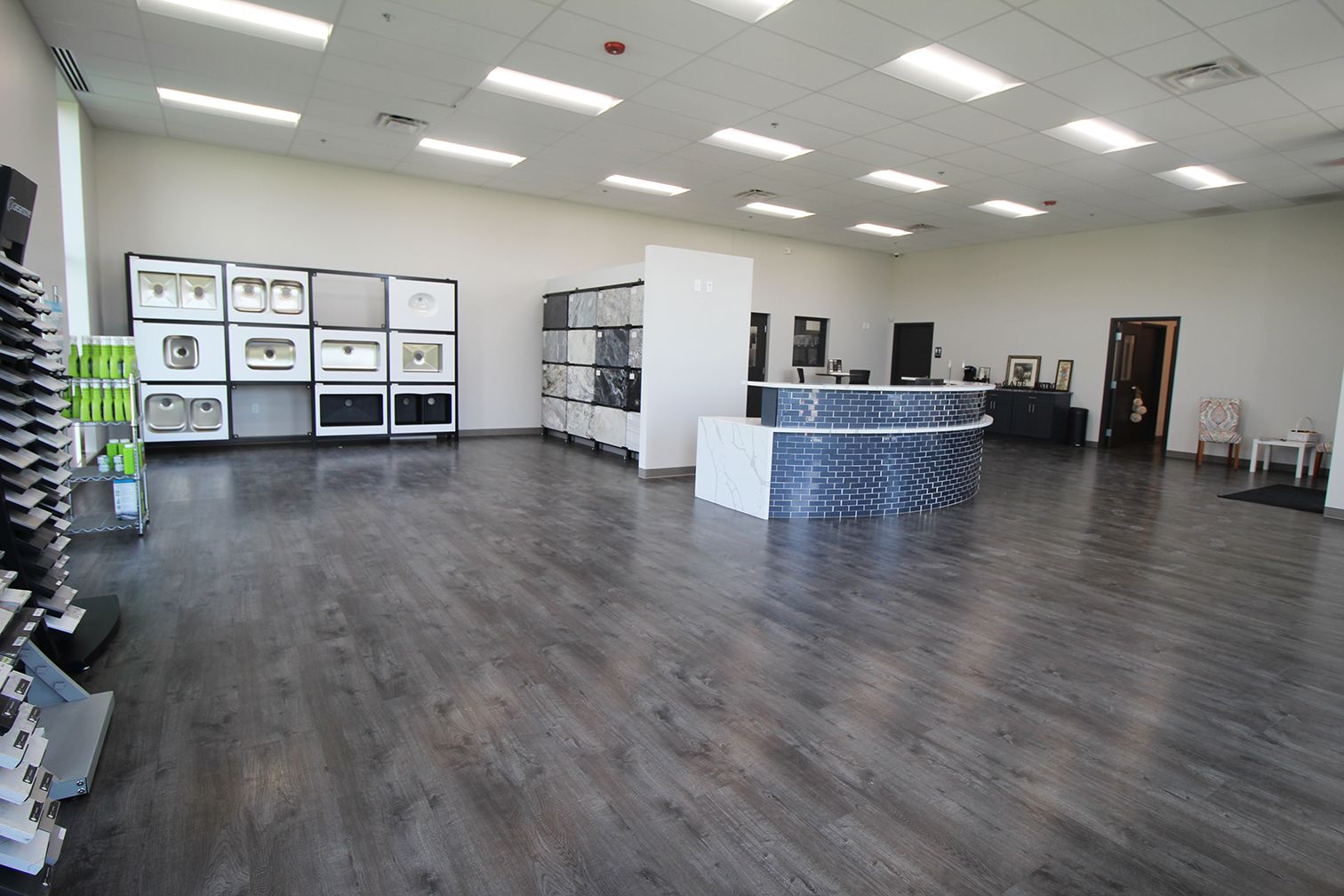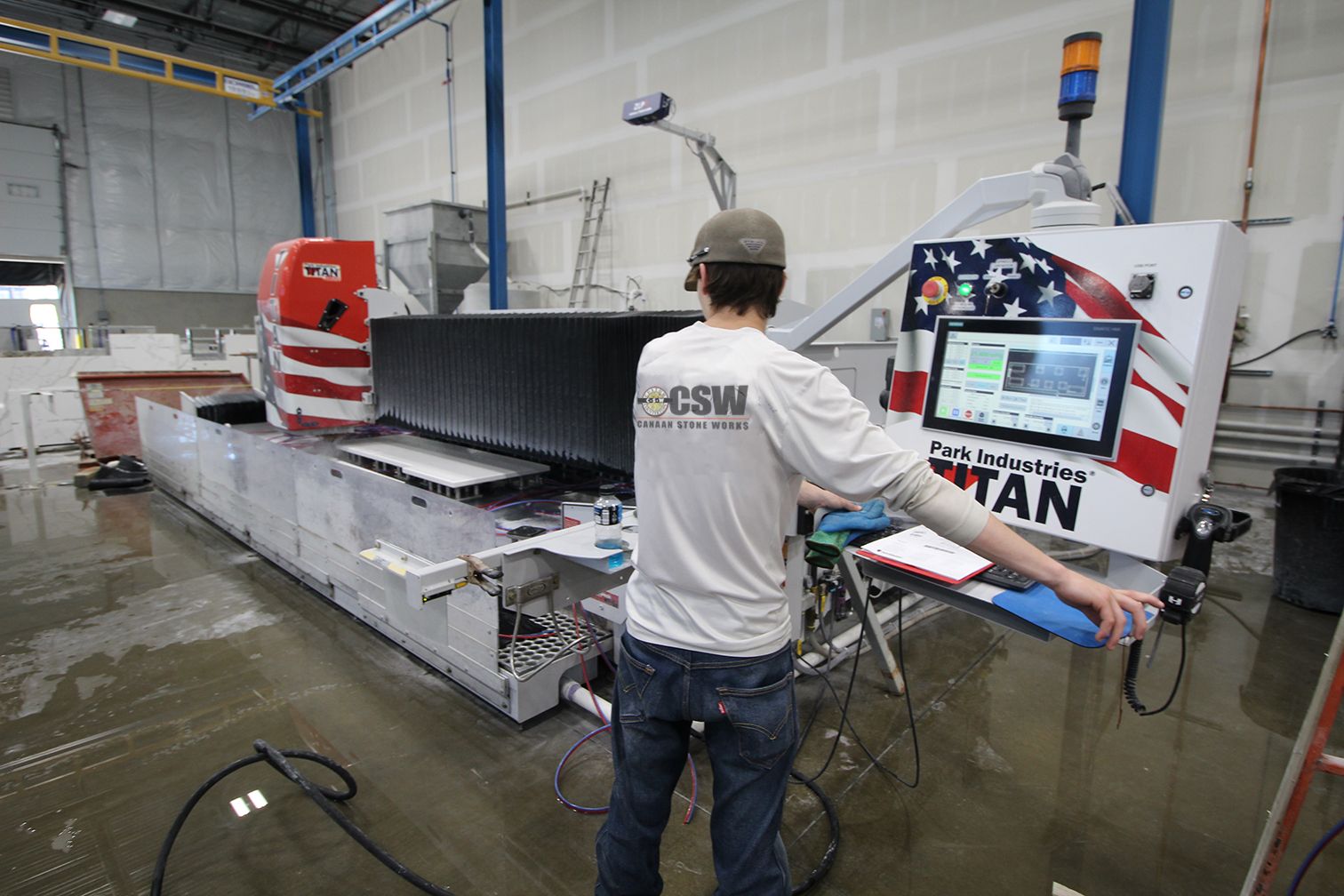Fabricator Focus
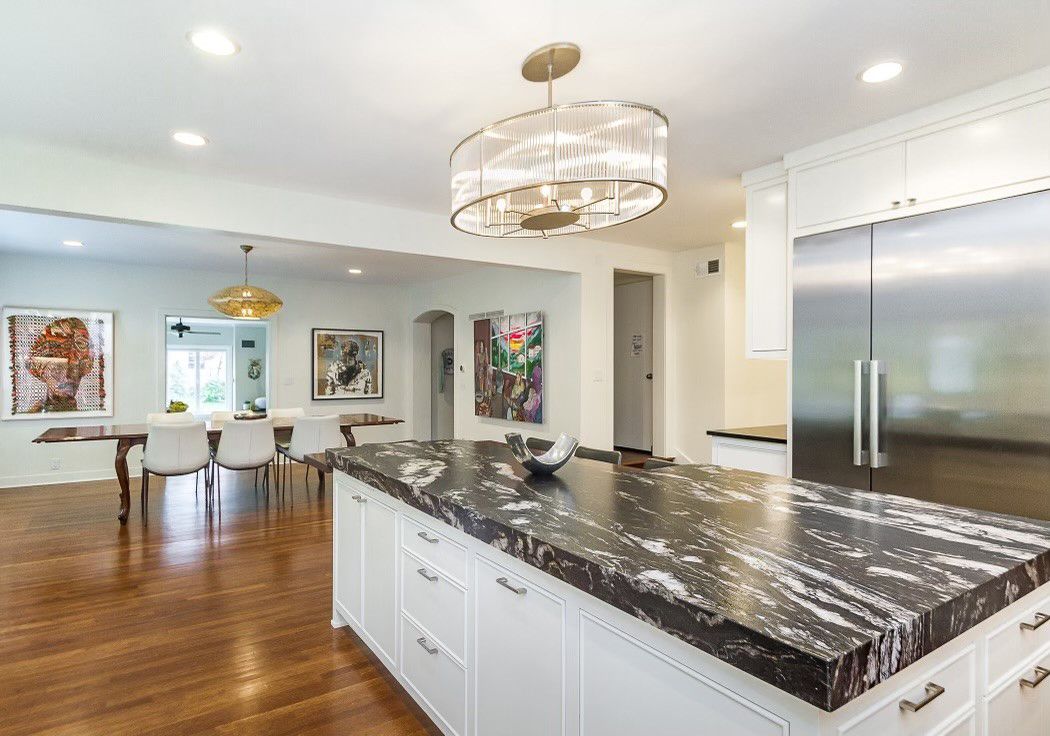
Canaan StoneWorks Shawnee, Kan.
"We value our staff in every aspect of this business."
All photos courtesy Canaan StoneWorks
By K. Schipper
SHAWNEE, Kan. – When it comes to business, Jerry Lee’s timing may leave some to be desired. The owner of Canaan Stone Works (CSW) faced the 2008 recession with a fair amount of debt, and then, at the end of last year, he moved his operation to this booming Kansas City suburb. His greatest success, he says, was getting through that period from 2008 to about 2011. “I’ve been in business my whole life, and that’s the worst thing I’ve ever been through,” he says. “COVID was easy by comparison. Absolutely.” Fortunately, his lengthy business career also left him with a large skill set to apply to problems. Although his background is in sales, he says he “loves” manufacturing.

Jerry Lee, Canaan Stone Works
"I don’t know if you can ever really say you have made it, but we’re really proud of what we have”
Jerry Lee
LITTLE OF NOTHING An unexpected mid-life career change brought Lee to the stone industry. For going on 20 years, he worked for a large multinational corporation based in the Kansas City area that manufactured lawnmower blades, rising to the position of director of sales for North America. However, after a couple buyouts, the new owners opted to move the corporate headquarters to Portland, Ore. “I was spending a lot of time in Portland,” he says. “One day, I was talking with my wife, Cecilia, about moving to Portland, and she said, ‘There may be one of us moving to Portland, but there won’t be two of us. My kids and my grandkids are here.’ So, I got the drift.” Instead, Lee gave his employer a year’s notice, started training his successor and began looking for his next step. Deciding to do something on their own, the Lees bought a couple Mail Boxes, Etc.® stores in the months before United Parcel Service bought out Mail Boxes and rebranded them as UPS Stores®. However, Lee soon realized that wasn’t what he wanted to do, and he began to think about how much he enjoyed manufacturing. “I started looking around, and then one day in 2005 a buddy of mine called and said, ‘Do you have any interest in joining me in a granite-fabrication company?’” he relates. “I looked at it, although I had no idea what I was doing. At that point, I didn’t know the difference between granite and laminate, but we got into it.” The Leavenworth, Kan.-based operation the two men renamed wasn’t much. Lee says the company had two employees and was on the verge of bankruptcy. Projects were cut on a rail saw and polished with hand tools, then installed by the fabrication crew. “When we first walked in, one of the guys was standing in a puddle of water with a Makita electric variable speed drill and a hose taped to it,” he says. ”I took my pocketknife out, cut the hose off and took the drill away from him. We went out and bought some new GFI-protected polishers specific to the business, but the guys didn’t like them. “I walked in about a week later and he had taped it all back together again. I told him, ‘You’re not going to die on my watch. Get rid of that drill.’” The employee did, and today he’s still working for Lee as a lead fabricator, while the other employee serves as CSW’s computer programmer. If there was an upside to all this, it’s that CSW was told to vacate what Lee calls “a very poorly laid-out 5,000 ft² building” within a few months of buying the business. “We bought a 10,000 ft² building in Leavenworth that we were in until Dec. 10, 2020, when we moved into a brand new 20,000 ft² facility here in the middle of the metro area,” he says. “We’re on the west side where all the building and booming is going on.”
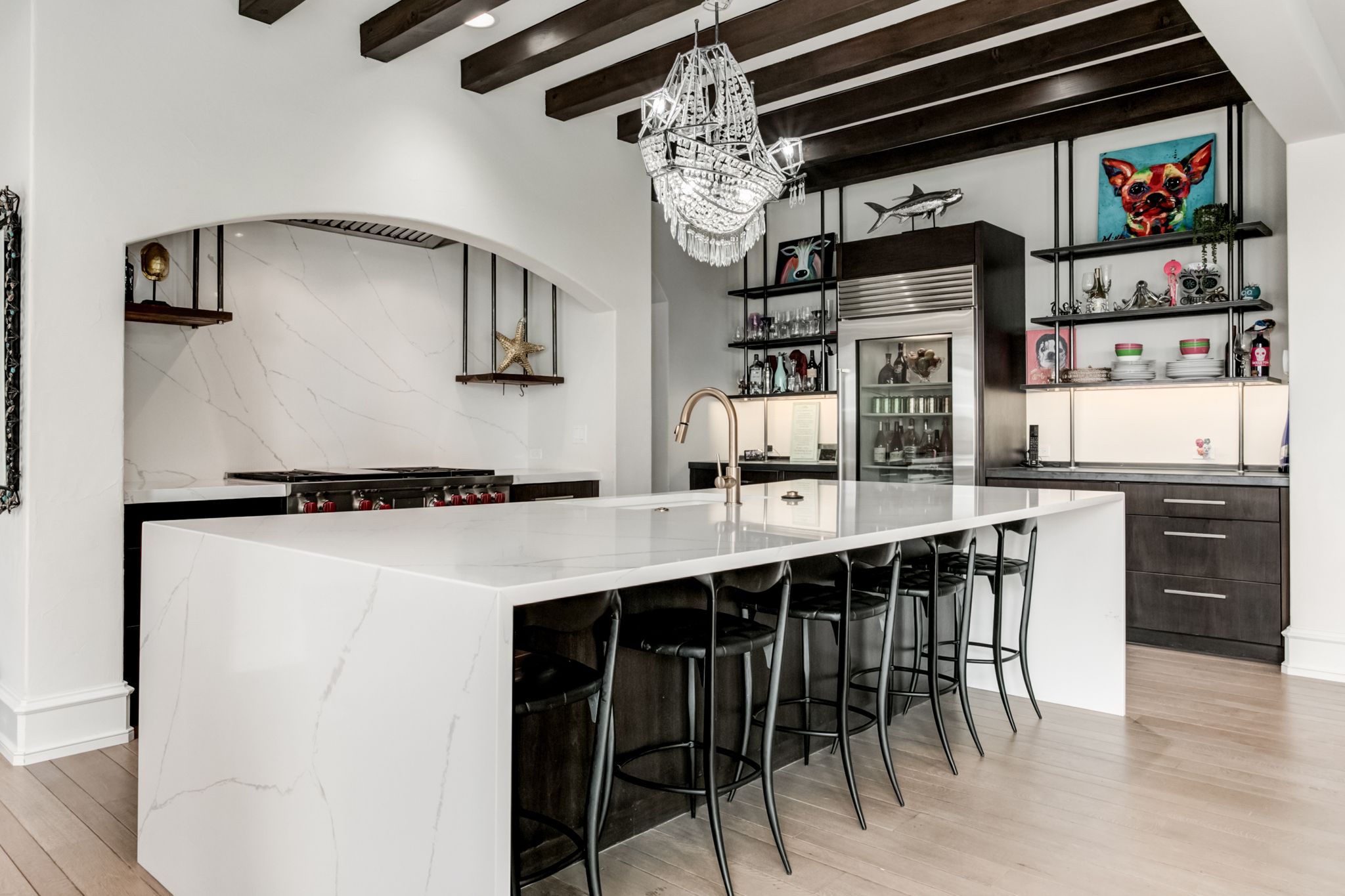
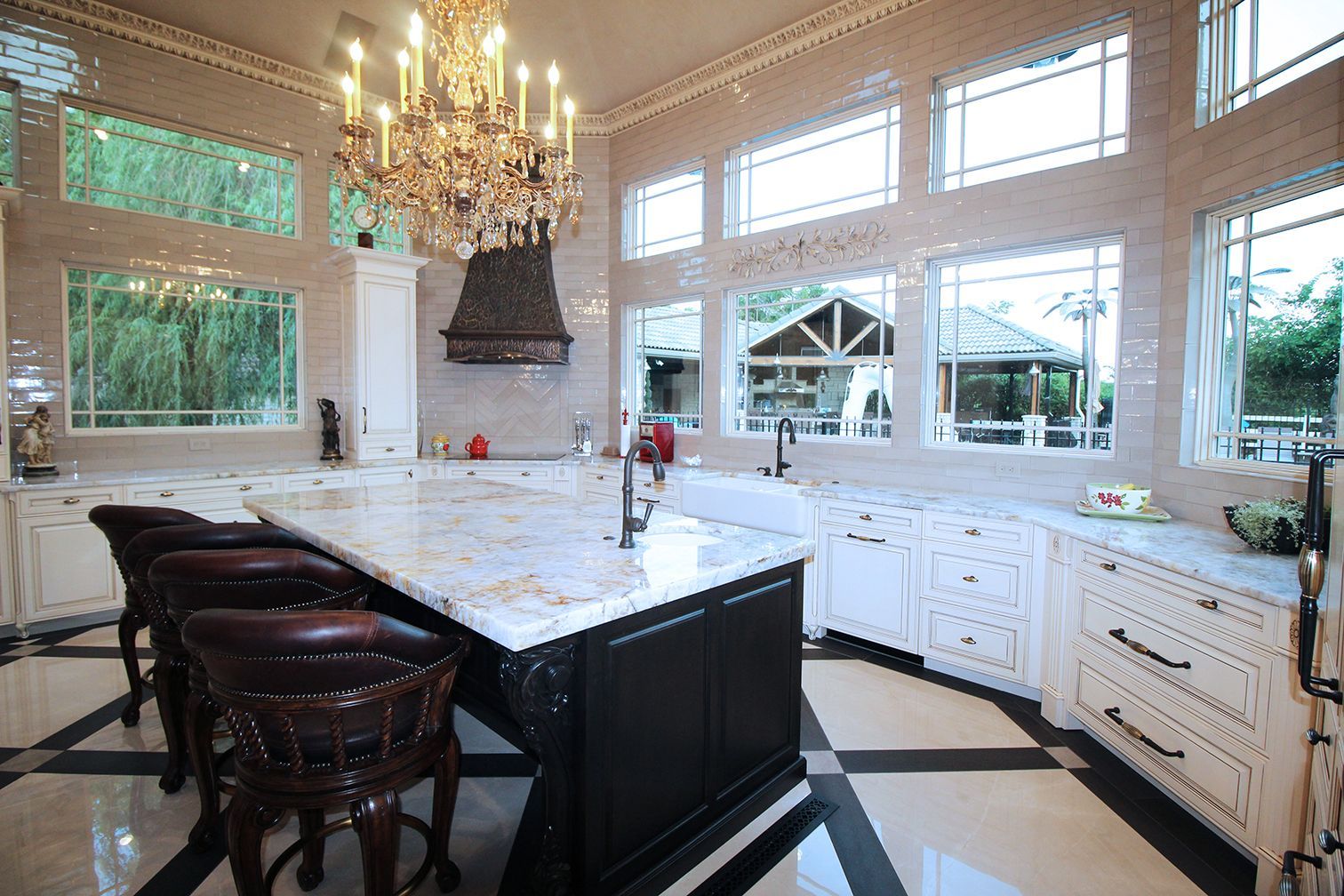
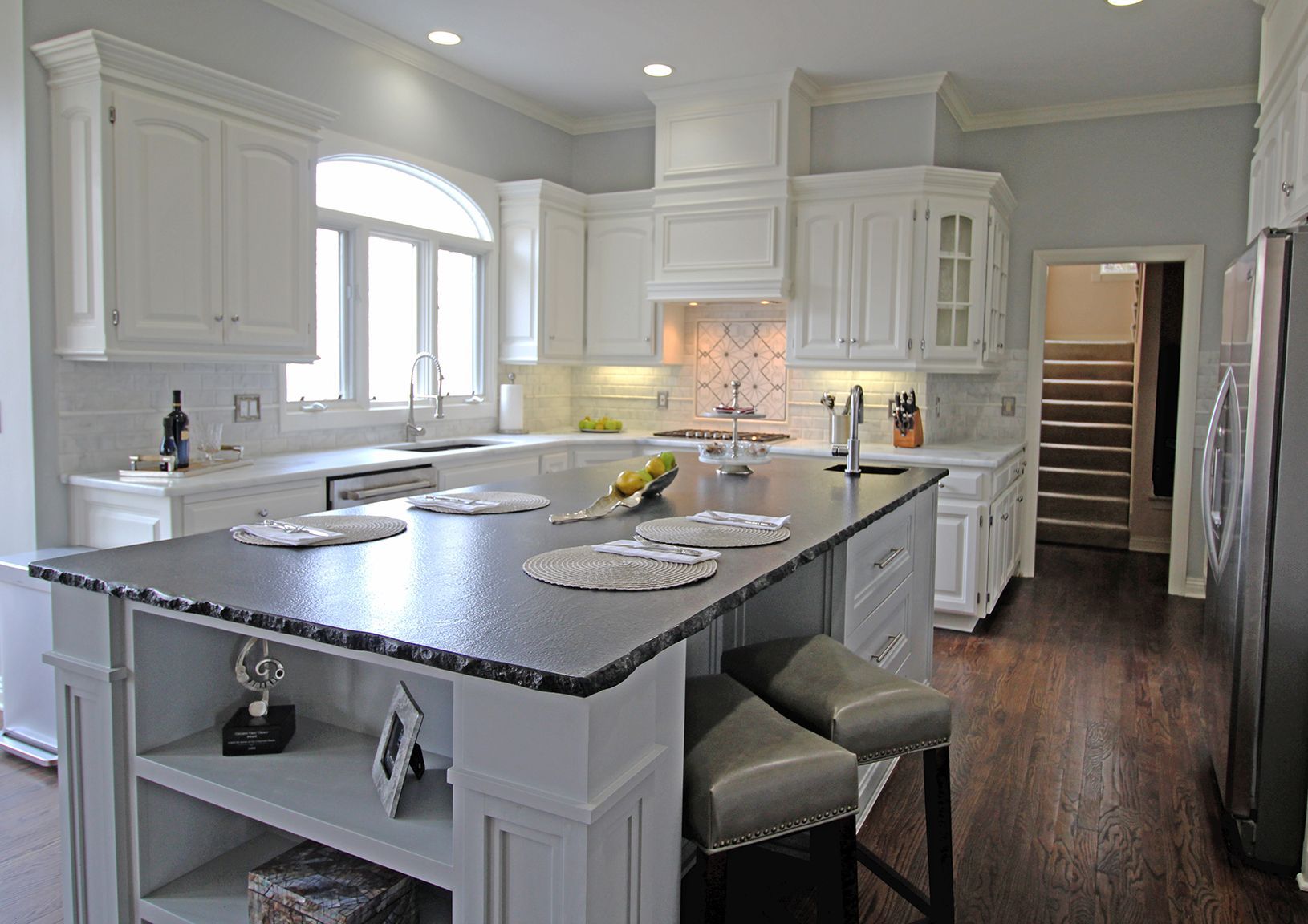
"We try to pay at or above market wages, because I want our people to be able to take care of their families.”
Jerry Lee
CREATING CONSISTENT QUALITY Going in, Lee might not have known much beyond recognizing an unsafe situation when he saw it, but he soon found ways to apply the skill sets he learned from his corporate days. “When I got into the business, my number one focus was sales,” he says. “We had a shop manager we ended up hiring. He didn’t know anything about it, but he learned. That first year we bought our first piece of CNC equipment (a Park Industries® SIERRA® bridge saw), and we sent him off for training and he began to learn the fabrication business.” While Lee says that sales was his primary focus for at least the first dozen years he owned Canaan Stone works, he also put his manufacturing expertise to work. “We started looking at processes and equipment,” he says. “The question is: how do you become efficient and develop and create consistent quality and volume? That’s when we began looking at equipment to do that.” The SIERRA was quickly followed by a CMS Brembana CNC router. Then, the equipment purchases stopped for a time. “We hit the 2008 crash and we were just trying to survive for several years,” Lee says. “That’s about the time I bought out my partner, and with the bridge saw and the router we could turn out about 500 ft² a week.” However, that doesn’t mean Lee wasn’t investing in other aspects of the operation. He installed cranes throughout his building, along with radiant heat. He also made a major investment in lighting. “As it became more readily available, we put in all LED 5k lighting,” he explains. “The lighting is as good as in a kitchen. That way, when we put all our seams together and polish them you can be 100% sure that the color match is good.” The company was also an early adopter of digital templating. CSW began using Photo Top Digital Templating when Lee purchased the Brembana CNC, and later added Slabsmith™ when it added a Donatoni CNC bridge saw. Today, CSW utilizes laser-template equipment from Laser Products Industries. Things really didn’t begin taking off until 2016 and 2017, and along with the Donatoni, he added a Park FASTBACK® II Edge Polisher. Not surprisingly, that 10,000 ft² of space began to get cramped, although Lee took his time about moving his operation. He opened a 4,000 ft² showroom less than a minute’s drive from his new spot in a Shawnee industrial park. “You might say I was doing some test marketing,” he says. “The space was just for a showroom and slab selection, and we saw a significant increase in business from this specific market. So, when I knew I was going to have to need a larger building, we decided to move the whole operation here.”
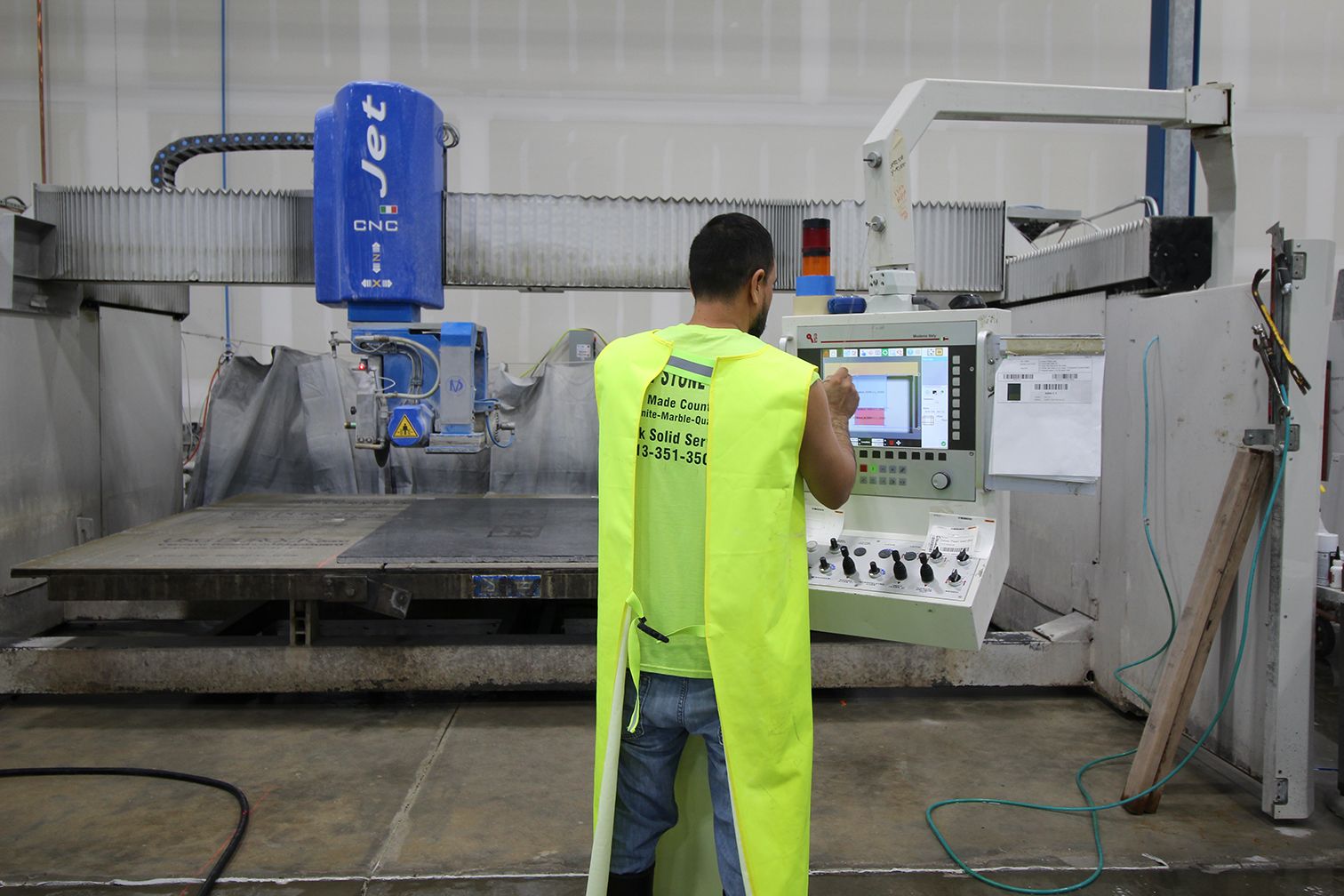
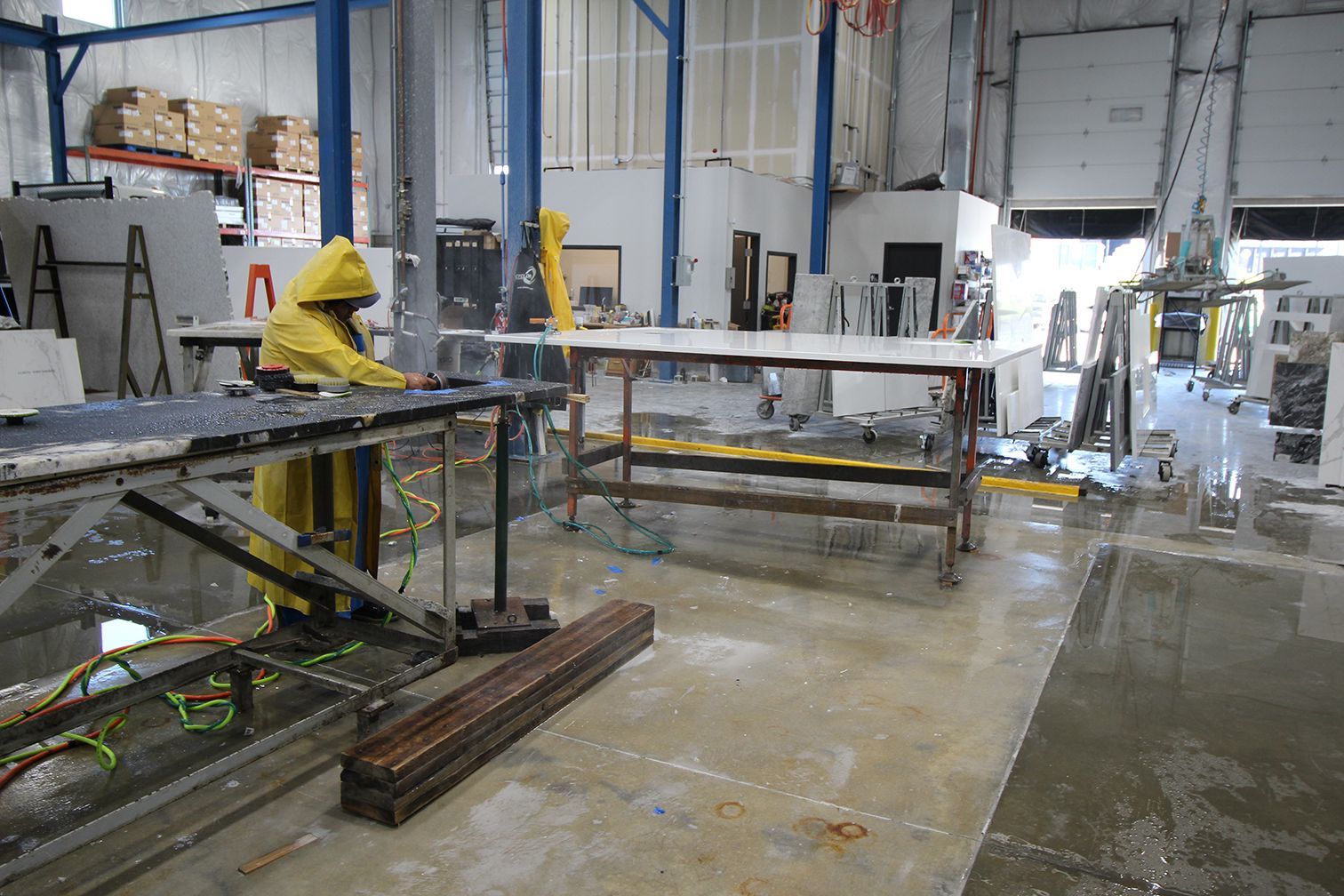

"I want to be able to truly measure whether we’re doing good, bad or in-between, where we’re gaining and what do we need to achieve specific goals”
Jerry Lee
THE BIG PICTURE The new building doubles CSW’s space to 20,000 ft², but some areas have benefitted more than others. For instance, from 700 ft² of showroom and office space, the company now has 3,500 ft² dedicated to those uses and divided almost equally between the two. Early on, the company used to refer customers to any of the several large slab suppliers in the Kansas City market. These days, CSW also has almost 8,000 ft² devoted to inventory, although Lee admits the highest-end clients still like the larger selection of the more exotic materials those suppliers stock. By getting deliveries three times a week, it doesn’t cause any delays in production. “We have 60-65 colors that we stock in a wide range from Group One to Group 10,” Lee says. “They’re arranged that way, so when people go out to look at slabs, as they move to the right, the products get more expensive. And we’re under excellent lighting.” If there’s one thing that hasn’t changed much over the years for the company, it’s its business mix. In 2005, it served the residential market, and that’s still true today, although Lee says he’s worked hard to build a good mix within that broad category. “About 40% of our business is in new residential construction,” he says. “We do about 40% in residential remodeling working with contractors. Another 10% to 12% is true retail customers who don’t have a contractor. The last part is commercial.” To reach that clientele, Lee says he’s tried a mix of different things over the years. For the last five or six years, he’s put a lot of focus on social media, and he has a contract employee who handles his marketing. Because so much of the company’s work is through contractors, there’s also a lot of emphasis on building personal relationships through organizations such as the Home Builders Association of Greater Kansas City and the local chapter of the National Association of the Remodeling Industry. “We do a lot of events, such as poker nights and social nights,” Lee says. “The new building has been great because now we have the space to really do it.” However, Lee has also reached a point where he’s been able to turn much of the sales effort over to a three-person sales team headed by his son, Steve Lee, who serves as vice president of sales and marketing. “As we’ve grown the business, I’ve really wanted to make more time for the manufacturing part that I enjoy,” he says. “I’m also more focused on the big picture and how are we going to get there.” It may be a buzzword these days, but part of that, Lee says, is developing the CSW brand. Again, he says, it goes back to having the equipment and instituting the processes that create a consistent quality. “That’s what everybody looks for,” he says. “Ours is at a high level, but it’s a consistent quality.” Helping Lee evaluate how things are going is a set of some 15 different metrics he regularly follows. They range from some of the more-common ones to items such as throughput-dollars, revenue-per-employee and revenue-per square-foot. He also tracks service tickets and re-cuts, and the information lets him know where the shop needs to improve -- and how to improve. “I’m a numbers guy and I track many metrics through the shop and the organization in general,” he says. “I want to be able to truly measure whether we’re doing good, bad or in-between, where we’re gaining and what do we need to achieve specific goals.”

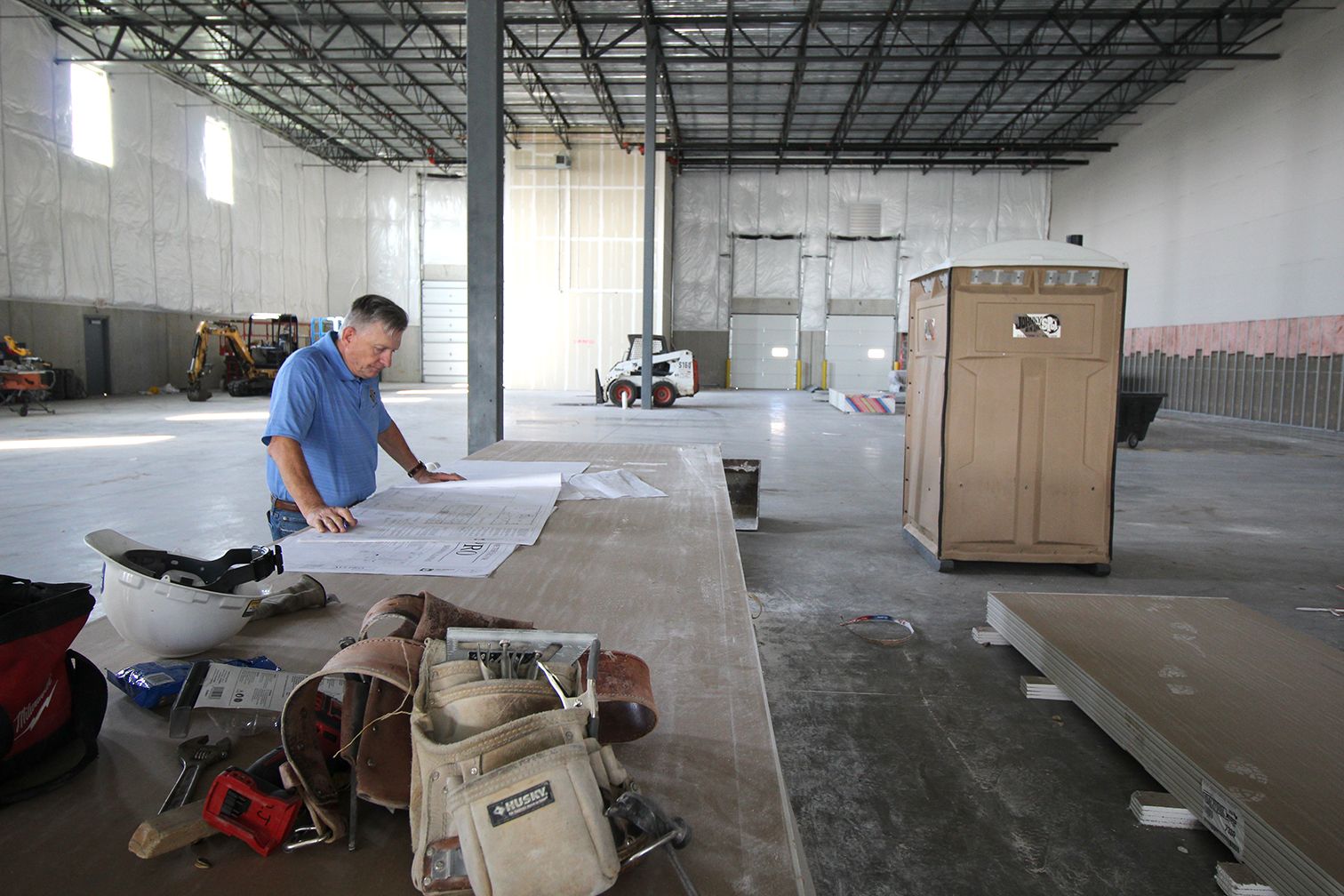
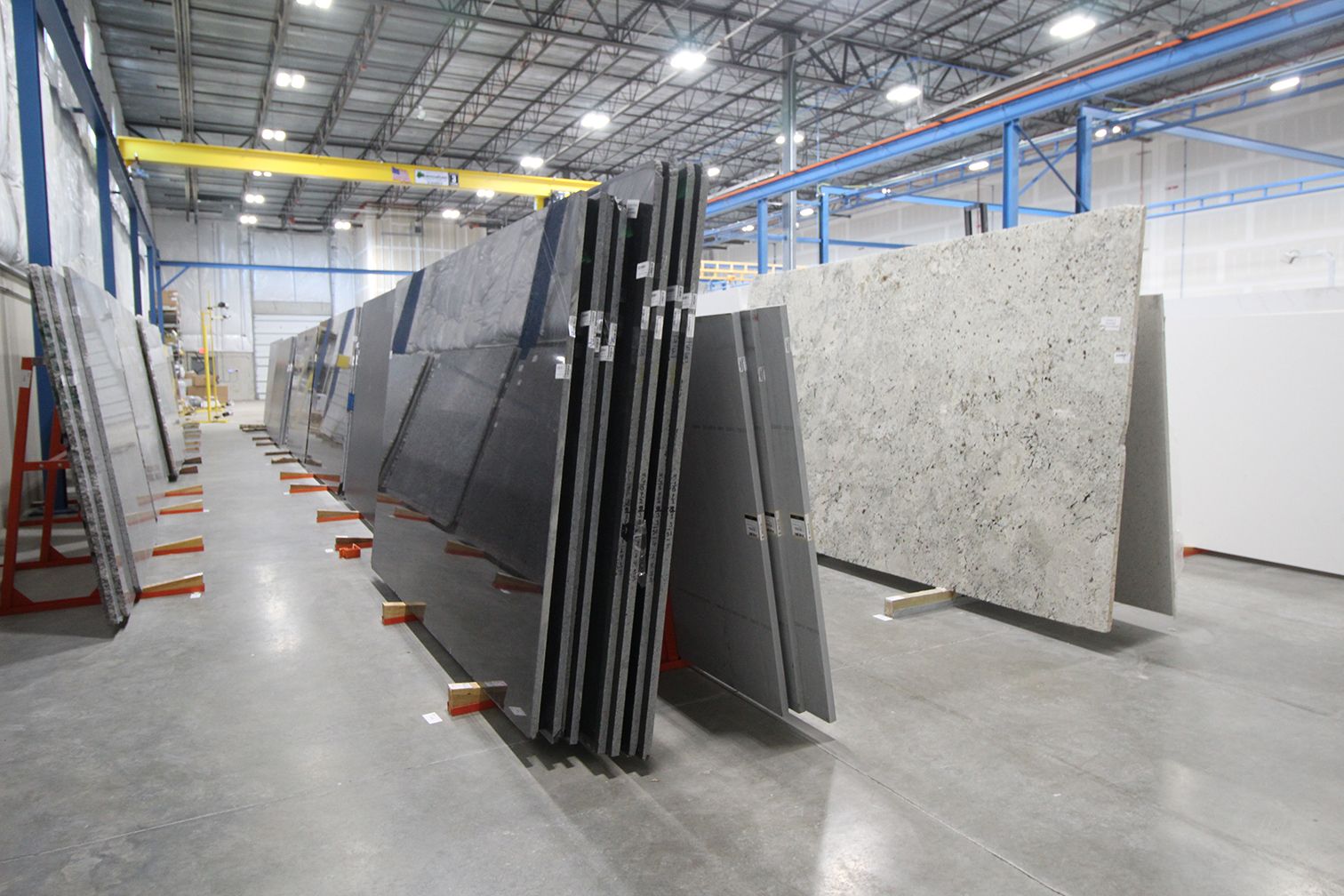
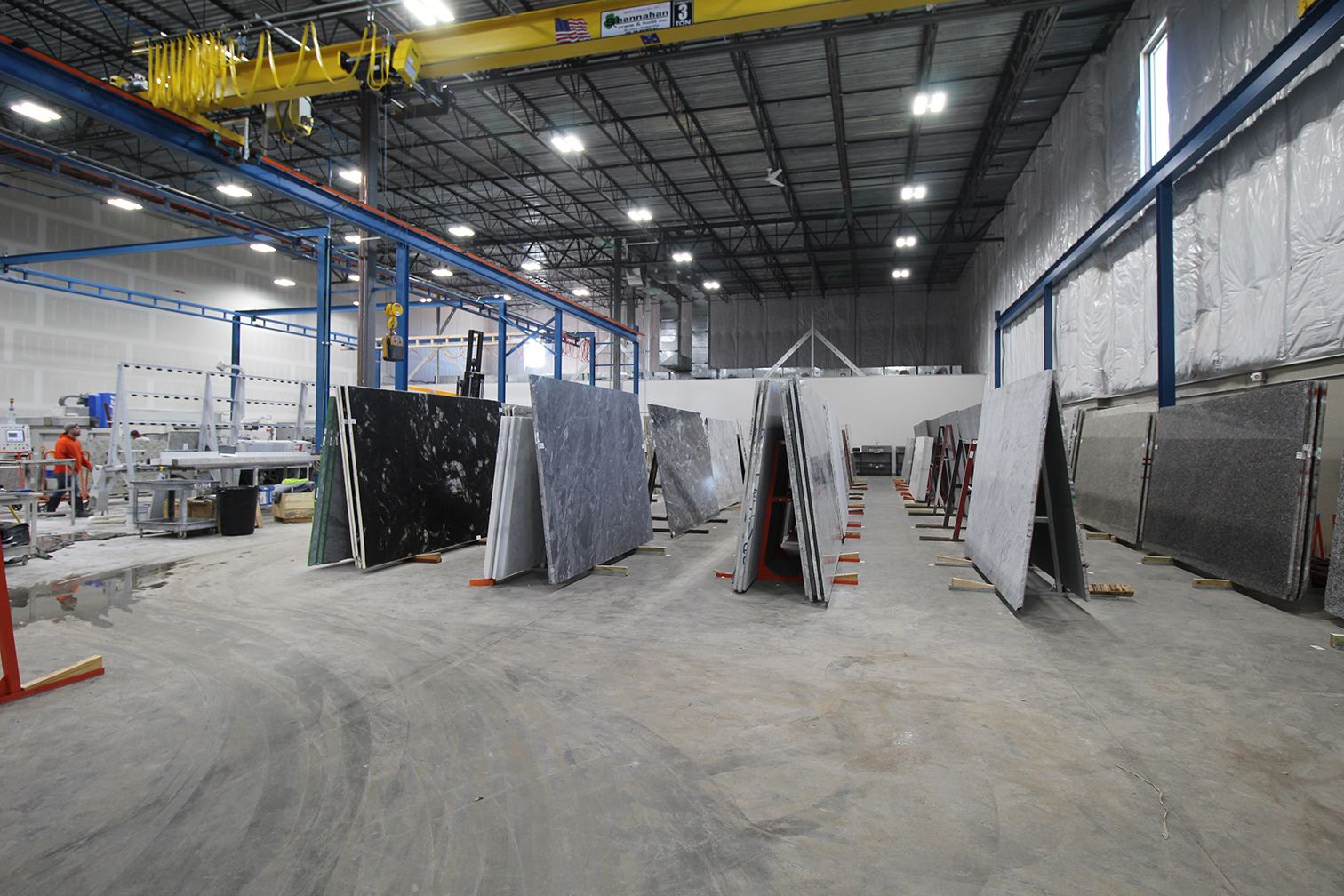
"The question is: How do you become efficient and develop and create consistent quality and volume? ”
Jerry Lee
INVESTING IN SUCCESS Still, from a subjective standpoint, he takes a great deal of pride in the fact that many of the general contractors say they’re not the best countertop subcontractor they’ve worked with, but rather the best subcontractor overall. And, he says a lot of that comes from constant communication and education. “We used to get our butt chewed because somebody didn’t know there was going to be a seam in a 14’ run,” Lee relates “We know they don’t make 14’ slabs, but we didn’t communicate that to them, and if we didn’t communicate it, then yeah, they’re mad at us. So, we learned those lessons, looked at the pain points of the business – whether for us or our customers – and figured out how to solve them.” These days, his three-person sales staff is assisted by three account managers and a scheduler. The account managers are mainly there to eliminate the obstacles. “They follow up to make sure we’re getting the measurements we need,” Lee explains. “They also get back to their customer to make sure they have all the information they need, and there’s a clear picture of when installs are going to happen, when the cabinets will be in, all the information we need.” The eight-person shop crew turns out 1,500-1,700 ft2 per week, which is installed by three crews, with most of CSW’s jobs coming within a 60-mile radius of Kansas City. Assisting in that effort are two additional pieces of equipment that joined the operation with the new building: a SABERJET™ XT saw and a TITAN® 3800, both from Park. Along with investing in equipment, Lee has been a consistent investor in his staff, which has grown to almost 30. “We value our staff in every aspect of this business, and they appreciate that respect,” he says. “We try to pay at or above market wages, because I want our people to be able to take care of their families. We’ve raised wages on a regular basis because we feel our people are worth it.” A key part of that is the company’s training program. Lee says he looks for people with experience in related industries, such as remodeling or cabinetry, and brings them in, although turnover at CSW is low. “I would also rather be slow and never have to go back to a job,” Lee says, although by the end of 2021 he hopes to see the operation turning out 2,000 ft2 plus a week. Other goals are a little harder to see. He’s considering adding either tile or solid surface to the company’s repertoire just because clients ask for it, and he expects to move more into porcelain, although he says demand so far has been low. Regardless of his future moves, Lee says his greatest accomplishment and pleasure is that it appears CSW is an enterprise that he can pass along to the next generation. Along with his son, his daughter, Stephanie Chandler and her husband, Mike also work there, and leave him convinced the business will be in good hands in the future. There’s even some interest from the third generation. “I’ve got a picture of my grandson [Cole Lee] out there running the brand new $300,000 router,” Lee says. “I asked my shop manager if he was sure he wanted to let him run the machine. He’s still in high school. The shop manager said he was ‘a natural’” In the meantime, Lee intends to enjoy his new building and a market that looks like it will be booming for at least the next couple years. “The other day, somebody told me, ‘It looks like you’ve got it made,’” he concludes. “I don’t know if you can ever really say you have made it, but we’re really proud of what we have.”
